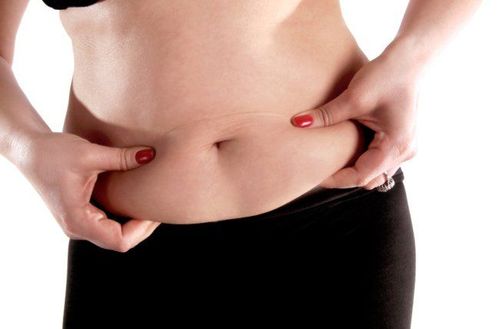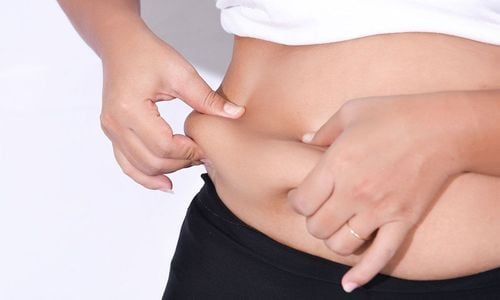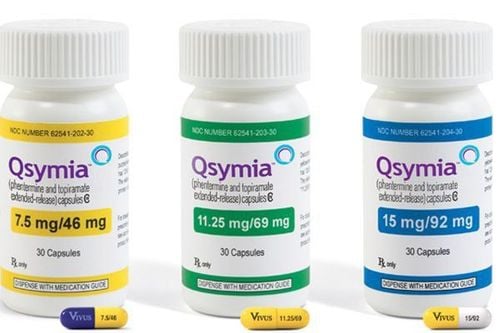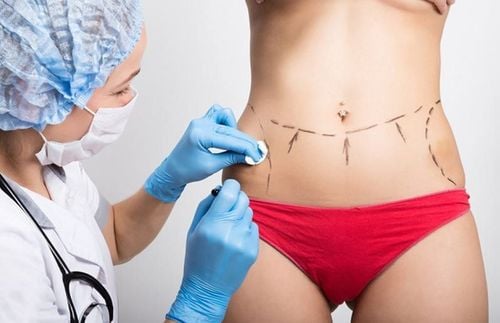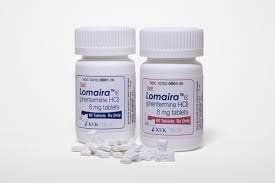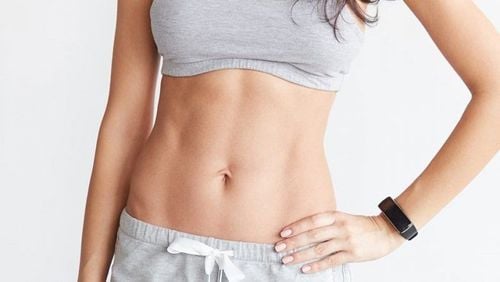This is an automatically translated article.
Abdominal liposuction is a popular procedure to remove fat and slim problem areas of the body. However, the removed fat comes back in a relatively short time, according to a new study. Obesity after liposuction really becomes a risk worth considering.1. Monitor the return of fat after abdominal liposuction
"All the fat comes back after a year," says researcher Robert H. Eckel, professor of medicine, physiology, and biophysics at the University of Colorado Anschutz Medical Facility. However, it will not return to the area of the body where the liposuction was performed. "The fat comes back in different places," Eckel tells WebMD. In her study, the women had liposuction of the lower abdomen, hips, or thighs and were followed for one year. Fat accumulation is noted in the upper abdomen and triceps arm area.He said that it was not observed that the abdominal area accumulates fat after liposuction. He speculates that the probing of these areas that occurs during liposuction somehow prevents fat from returning there.
New research published in the journal Obesity. LaSandra Cooper, a spokeswoman for the American Society of Plastic Surgeons, said more than 203,000 liposuction procedures were performed in 2010, a 2% increase from the previous year. In this procedure, a thin, hollow tube is inserted through the incisions to liquefy the fat. Next, the liquefied fat is sucked out.
Two plastic surgeons who reviewed the data for WebMD say they have not noticed fat return in their liposuction patients.
For the study, Eckel and his colleagues evaluated 32 women. A mean body mass index (BMI) of less than 25 is considered a reasonable weight. The BMI value range is between 22 and 27.
The women have been at a healthy weight for at least three to six months. No one had a history of weight loss of more than 10% of their maximum body weight. They have never had liposuction before.
Their average age is 40. Age between 18 and 50. No one has not gone through menopause. Of the 32 women, 14 were assigned liposuction. The remaining 18 served as comparison groups. The women unanimously agreed not to change their lifestyle habits such as exercise and eating habits.
In the liposuction group, doctors removed up to 5 liters of fat from 3 areas: hips, thighs, and lower abdomen. At week six, body fat percentage in the liposuction group decreased by 2.1% and 0.28% in the comparison group.
After six months, the difference between the groups gradually decreased. By one year, there was no significant difference in body fat between the two groups. Fat that comes back in different areas is not just the fat that lies just under the skin, called subcutaneous fat, but also the fat that lies deeper, called visceral fat, which is associated with increased risk of cancer. cardiovascular diseases.

Theo một nghiên cứu, chất béo có thể quay trở lại trong thời gian ngắn sau khi hút mỡ
Eckel's advice for those about to have liposuction? "Be prepared. Your fat will come back and it may be distributed up your waist [if the liposuctioned areas are below that.]" Eckel couldn't explain for sure why the fat. back in different places. However, he speculates, "the brain senses the loss of fat and restores it."
2. Abdominal liposuction is not for weight loss
Phil Haeck is president of the American Society of Plastic Surgeons and a plastic surgeon in Seattle. He reviewed the new study for WebMD and called it a ''turning point'' study.“I hope we have more of these,” he said. However, he noted some limitations, such as the small number of women studied. He will love to see the before and after pictures of liposuction, to gauge how noticeable the fat accumulation is again. Regarding the return of fat, he says, "I haven't seen it in my patients."
Marcel Daniels, a plastic surgeon in Long Beach, California, who also reviewed the study findings for WebMD. He has been doing liposuction for 20 years. "With that small study, the results are preliminary," he said of the new findings. "You can't draw conclusions from that." He wondered if some of the changes in fat observed during the year might be age-related, since the average age of women is 40.
Haeck and Daniels say that anyone thinking about it Every liposuction should know that it is no substitute for a healthy lifestyle. It is also not a weight loss procedure.
Haeck says, when performed correctly by a qualified physician, liposuction can be a satisfying surgery but it is no substitute for diet and exercise. sex.
Daniels, an associate professor of plastic surgery at the University of California Irvine, says, “Lose liposuction should act as a springboard to a healthier lifestyle.”
Abdominal liposuction can help you shrink your waistline, but without reducing your risk of health-related obesity like cardiovascular disease, high blood pressure and diabetes.To improve your health, you need to lose weight the traditional way - reduce calories with a diet Diet and exercise, new study finds.
After removing belly fat with liposuction in 15 obese women, researchers found that sudden weight loss did not lead to improvement. other health- and disease-related risk factors such as obesity, insulin resistance, high cholesterol and other disorders of blood fats, high blood pressure
Researcher Samuel Klein, MD, "We were a bit surprised that so much fat was removed — 22 pounds per patient on average," told WebMD. "That's about 20% of total fat loss. one's body."
Klein, Danforth Professor of Medicine and Nutritional Sciences at Washington University School of Medicine in St. Louis, said that eliminating fat produced no improvements in relation to risk factors for obesity, which increase the risk of cardiovascular disease and diabetes.
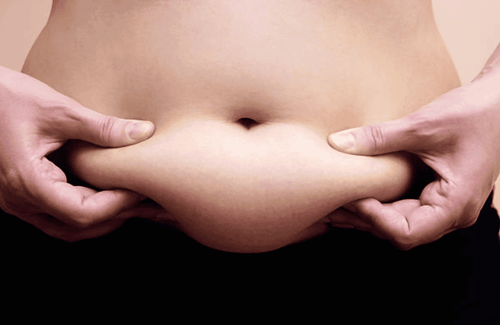
Hút mỡ bụng không thể thay thế cho một lối sống lành mạnh
3. The difference between traditional weight loss and abdominal liposuction
“If these patients were to lose that much fat by dieting, we would expect to see dramatic improvements,” he said. "Even a little bit of fat loss by dieting - much less than what we've removed with liposuction - can produce significant benefits in terms of internal metabolism. body."Klein tells WebMD: "When you lose weight by dieting or exercising, you shrink the size of your fat cells, which improves metabolism." "With liposuction, you remove the number of fat cells, but you don't shrink the size of the remaining fat cells."
Researchers say that dieting that leads to fewer total daily calories shrinks fat cells. You need to achieve a negative energy balance, meaning that the calories burned should be more than you consume. This balance provides the health benefits of weight loss, he says.
The type of fat removed by liposuction may also explain Klein's findings, published in this week's New England Journal of Medicine. In abdominal liposuction, fat is removed from underneath the skin of the abdomen. But previous studies have shown that excess fat surrounding the internal organs plays a more important role in increasing the risk of obesity-related health problems.
4. Lessons learned from animals
Previous animal research has shown that surgical removal of visceral fat provides "a marked and almost immediate improvement in insulin resistance," says David E. Kelley, of the Center for Obesity Research. Obesity and Nutrition of the University of Pittsburgh, who wrote an accompanying editorial to Klein's study, notes. But surgery to remove subcutaneous fat — as it was done in the Klein study — has had little effect in animal studies.
Ăn kiêng và tập thể dục có thể giảm nguy cơ sức khỏe liên quan đến béo phì
But there's something encouraging about his study, at least for those considering liposuction for quick weight loss: It proves that surgically removing large amounts of fat is safe. None of his study participants developed complications from the amount of fat removed. And in this particular study, the amount of fat absorbed was much higher than the amount normally removed.
Klein told WebMD: “This should not be seen as an indictment for liposuction because it offers good cosmetic benefits. "And it can stimulate people to become more active, which can help them lose more weight."
Please dial HOTLINE for more information or register for an appointment HERE. Download MyVinmec app to make appointments faster and to manage your bookings easily.
Reference source: Webmd.com



